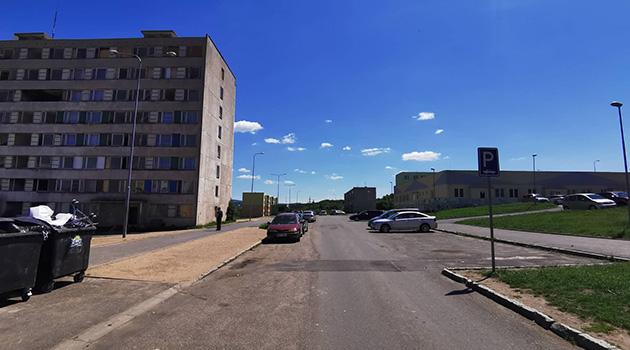Analysis: Czech town approves construction of "container" housing on estate mostly inhabited by Romani people

On 12 December the local assembly in Most, Czech Republic approved the budget to build “container” housing for families and individuals living at the Chanov housing estate. The decision means that in addition to the city hall becoming an active builder of a ghetto there, it has also demonstrated it is a wasteful manager of the local budget.
According to experts, the choice of “container” housing was the worst available option, one that will negatively impact the lives not just of the residents of Chanov, but the lives of all inhabitants of Most. However, the city does still have an opportunity to take advantage of a much better method for addressing the situation at the housing estate.
Instead of building “container” housing, city hall could be awarded a subsidy by the Regional Development Ministry to repair the estate’s prefabricated apartment buildings, specifically, buildings 6 through 10. Of course, that ministry will not provide a subsidy to build “container” housing, so the local assembly members have instead made the arbitrary decision to waste the municipal budget on that construction without taking state aid.
Previously, residents of the Chanov housing estate objected to the idea of building the “modular housing” out of shipping containers, as did local opposition assembly members from the Greens and the Pirates, the Czech Government Agency for Social Inclusion, and a spokesperson for a community working group on the issue, Jan Chromý, who also submitted a petition to city leadership against the plan. These stakeholders all agree that building the containers inside an already-existing ghetto will intensify segregation and will create a “time bomb” situation, something that contravenes all of the principles of integration policy and all meaningful solutions not based on populist, short-term gestures.
“The building [of ‘containers’] is very unfortunate in any event and will have various consequences, beginning with the fact that several generations of local children will spend their youth in degrading conditions that will necessarily impact their development,” Milan Krám, writing for the news server A2larm.cz, warns. He also mentioned the attempt by city hall to manipulate the other inhabitants of Most by posting photographs to its website documenting the garbage that has accumulated behind one of the prefabricated apartment buildings on the Chanov housing estate.
“That was nothing but a PR move that was meant to ‘correctly attune’ the citizenry of Most, by which I mean the local majority, and to prepare them for the next step, which is buying and installing the modular housing that is also known as čunkodomky,” Krám explains on A2larm.cz. The name references the mayor of another Czech town who installed “container” housing almost 15 years ago now on the site of a former dump and forced Romani residents into it.
David Beňák, director of the Czech Government Agency for Social Inclusion, previously said that “We consider the ideal solution to be the gradual winding down of the housing estate, which would be implemented long-term with regard to the needs of local residents. The housing estate inhabitants would subsequently be provided long-term rental housing elsewhere in the city, in apartment units of standard quality, in localities that would not be segregated.”
For many Chanov residents, the housing estate is the place they have lived their entire lives. The city’s segregating practices have condemned several generations to live in this excluded locality featuring many negative phenomena and eventually they have grown accustomed to living there.
It is impossible to anticipate that the “winding down” of the housing estate at Chanov could happen abruptly, which is why the Agency says it should be a long-term endeavor. “Building ‘containers’ on the outskirts of existing ghettos is not a solution, but a time bomb. A new generation of Romani people will grow up there who will not even be able to imagine what life looks like in a standard apartment unit. The path to integration genuinely does not lead in that direction,” the chair of the Pirate Party, Ivan Bartoš, previously summarized his opinion of the city hall’s approach to the local Mostecké listy newspaper.
